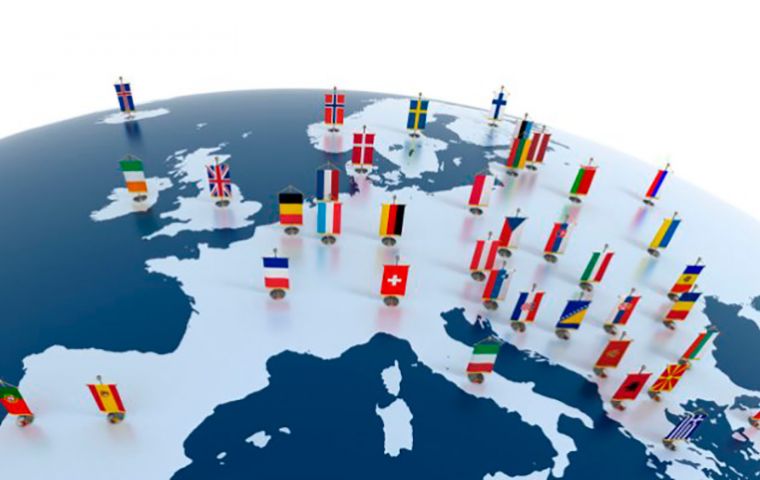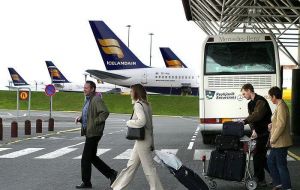MercoPress. South Atlantic News Agency
Europe welcomed 671 million tourist arrivals in 2017, up 8% from 2016
 According to ETC regional expansion was supported by economic growth in major source markets and recovery of destinations previously affected by security
According to ETC regional expansion was supported by economic growth in major source markets and recovery of destinations previously affected by security  “The upturn in the global economy paves the way to reorient European and national policy to support the drivers of tourism growth,” said Eduardo Santander
“The upturn in the global economy paves the way to reorient European and national policy to support the drivers of tourism growth,” said Eduardo Santander  Turkey (+28%) experienced an impressive rebound in visitor arrivals with growth largely driven by Russian outbound flows (+465.2%).
Turkey (+28%) experienced an impressive rebound in visitor arrivals with growth largely driven by Russian outbound flows (+465.2%).  Iceland (+24%), the fastest growing destination since 2012, showed robust results while its government considers measures to address “over tourism”.
Iceland (+24%), the fastest growing destination since 2012, showed robust results while its government considers measures to address “over tourism”. Europe welcomed 671 million international tourist arrivals in 2017, an outstanding 8% growth compared to 2016 (+2%), consolidating for the eighth consecutive year, its position as the leading destination worldwide.
According to the latest European Travel Commission's “European Tourism 2017-Trends and Prospects”, regional expansion was supported by the economic growth in major source markets and the recovery of destinations previously affected by security concerns. Almost all monitored destinations saw increases in tourist arrivals with more than a half growing in excess of 10%.
“The upturn in the global economy paves the way to reorient European and national policy to support the drivers of tourism growth, promote long-term sustainable development and be a more effective catalyst for job creation in Europe,” said Eduardo Santander, Executive Director of ETC.
Turkey (+28%) experienced an impressive rebound in visitor arrivals with growth largely driven by Russian outbound flows (+465.2%). Iceland(+24%), the fastest growing destination since 2012, showed robust results while its government considers measures to address “over tourism”.
Destinations in Southern/Mediterranean Europe Montenegro (+19%), Serbia (+18%) Malta (+16%), Slovenia and Cyprus (both +15%) also boosted growth and have proved their success in overcoming seasonality. Finland(+14%) enjoyed a solid increase fuelled by Chinese and Indian arrivals. Established summer destinations Croatia (+14%), Portugal (+12%) and Spain(+9%) also saw healthy growth. In Spain political tensions in Catalonia seem not have weighed down tourism demand while improved air connectivity continues to underpin Portugal’s strong performance.
Growth from the UK largely continued despite a weakened Pound with several destinations posting double-digit increases. France and Germany continued to be a source of notable arrivals growth for several European destinations aided by encouraging economic conditions that support private consumption.
Russian outbound travel has picked up following years of declines. All but one reporting destinations enjoyed a strong rebound in arrivals from this market. Despite some recent softening, a stronger US dollar and competitive air fares contributed to growth in tourist arrivals from the US, up +12% in 2017 compared to 2016. In China improved air connectivity and its expanding middle class continue to drive travel demand. In 2017, Europe saw a remarkable 16% increase from China, compared to the flat growth in 2016.




Top Comments
Disclaimer & comment rulesCommenting for this story is now closed.
If you have a Facebook account, become a fan and comment on our Facebook Page!